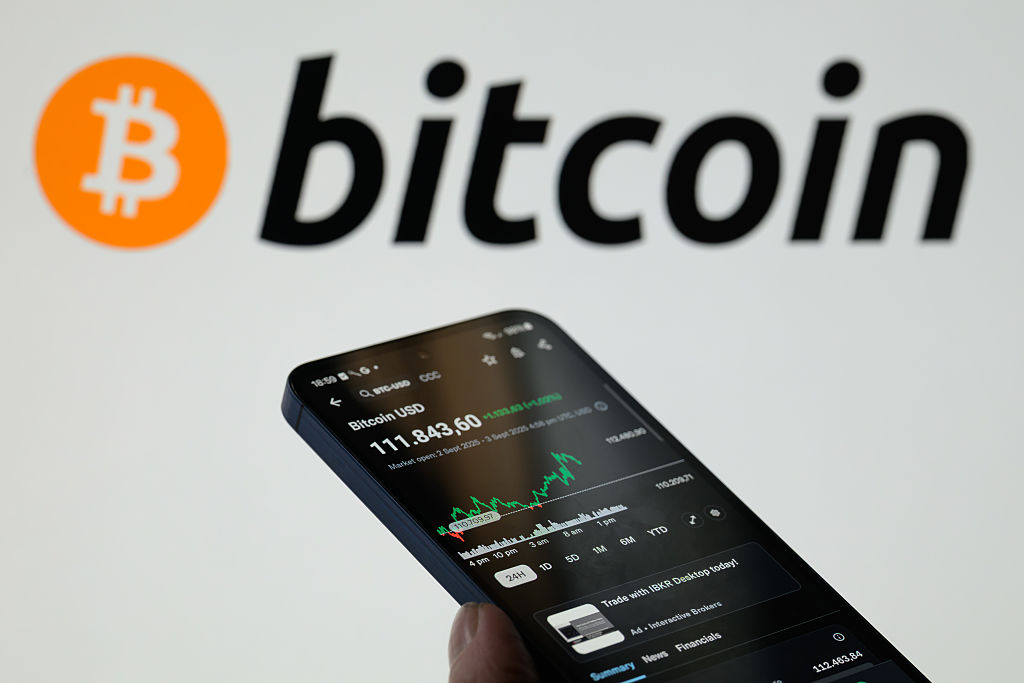Don’t be misled by ‘superclean’ fund charge spin
Fund supermarkets offering cheaper versions of a fund sounds like a good deal for investors. But there are a few snags, says Cris Sholto Heaton.

Get the latest financial news, insights and expert analysis from our award-winning MoneyWeek team, to help you understand what really matters when it comes to your finances.
You are now subscribed
Your newsletter sign-up was successful
Want to add more newsletters?

Twice daily
MoneyWeek
Get the latest financial news, insights and expert analysis from our award-winning MoneyWeek team, to help you understand what really matters when it comes to your finances.

Four times a week
Look After My Bills
Sign up to our free money-saving newsletter, filled with the latest news and expert advice to help you find the best tips and deals for managing your bills. Start saving today!
So far, it's been a good year for investors. New rules brought in by Britain's investment watchdog, the Financial Conduct Authority (FCA), are making it far easier to work out just how much it's costing you to invest and who is taking the money from you.
The old, opaque system of 'trail commission' which meant that part of a fund's annual management charge (AMC) was passed back to fund supermarkets and brokers to pay for their services has been thrown out. Instead, we now have new 'clean' versions of funds that don't pay trail commission and have lower AMCs as a result.
Fund supermarkets and brokers instead have to charge explicitly for dealing costs or custody fees, if they want to make money from your fund holdings.
MoneyWeek
Subscribe to MoneyWeek today and get your first six magazine issues absolutely FREE

Sign up to Money Morning
Don't miss the latest investment and personal finances news, market analysis, plus money-saving tips with our free twice-daily newsletter
Don't miss the latest investment and personal finances news, market analysis, plus money-saving tips with our free twice-daily newsletter
As the cost of investing has become more transparent, investors also seem to be paying more attention to these costs and how they impact on their long-term savings putting more pressure on the financial industry to cut costs.
That's good news for investors, and bad news for those who were taking a large cut of the AMC and relying on customers not to realise just how much they were effectively being charged for their services.
From clean to superclean
A superclean fund is one where the platform has negotiated a special deal with the fund manager to offer a version of the fund with an even lower AMC than the 'clean' share class.At first glance, it sounds as though this means an even better deal for investors, as supermarkets put pressure on fund managers to offer deals. But there are a number of snags.
First, unlike clean share classes, a fund's superclean shares class will only be available on one or more favoured platforms. So this means that different platforms will have different deals on different funds.
For example, Platform A may offer a superclean version of fund X, with an AMC of 0.65%, while Platform B only has the standard clean share class with an AMC of 0.75%. However, Platform B may have a 0.6% superclean version of Fund Y, while Platform A has the standard AMC of 0.75%.
This makes it a lot harder to compare platforms working out the best deal for your portfolio could become a tedious process of checking the AMCs for several different share classes of the same fund for every one of your holdings.
Of course, if you assume that the biggest, most widely-used platforms are generally likely to secure the biggest discounts on superclean share classes (in the same way that a big supermarket can get a better deal from suppliers than a corner shop) that may not be such a major problem. Realistically, investors can probably expect a couple of heavyweight platforms to consistently match or beat their peers.
However, that doesn't necessarily make it easier to find the cheapest provider. You see, AMCs are only part of the picture. They could easily be outweighed by higher platform costs.
Imagine that Platform C boasts an average 0.21% discount on the superclean classes of the funds it carries, but charges a fee of 0.45% a year. Platform D has no superclean classes, but charges only 0.25% a year. An investor who only holds the discounted superclean funds could potentially be better off with Platform C, but a more typical investor might well have a lower 'total cost of ownership' through Platform D. So, being lured in by lower AMCs could leave you paying more overall.
Lastly, investors should bear in mind that the AMC is only part of the cost of investing in a fund. A more relevant measure is the fund's total expense ratio (TER) or ongoing charge figure (OCF).
These figures include expenses that aren't included in the AMC, and can often bump up the cost of owning the fund significantly. So, it's worth being aware that two share classes of the same fund don't necessarily need to have the same expenses.
The clean class could have an AMC of 0.75% and other expenses of 0.25%, while the superclean fund could have an AMC of 0.65% but other expenses of 0.35%, giving the same TER (1%) in both cases.
At the moment, it's too early to tell if any of the fund houses offering superclean classes to platforms are going to try padding non-AMC expenses to make up the difference, but if they do, those discounted AMCs could be less of a saving than they look.
Look for the best all-round deal
Overall, they seem more like a ploy to confuse investors, than a genuine saving. It's probably no coincidence that the platforms that appear keenest on the idea are those with particularly high platform charges.
Given that, we think most investors will be better off ignoring the question of who has the biggest discounts on superclean funds, at least for now (with the market in such a state of flux, it's impossible to say what the situation might be in a year or so).
Instead, focus on which provider offers a good deal based on your investing pattern (such as how frequently you trade) and assume that AMCs are the same across all providers. That way, you're more likely to find the best all-round option and avoid being misled by marketing spin.
Get the latest financial news, insights and expert analysis from our award-winning MoneyWeek team, to help you understand what really matters when it comes to your finances.

Cris Sholt Heaton is the contributing editor for MoneyWeek.
He is an investment analyst and writer who has been contributing to MoneyWeek since 2006 and was managing editor of the magazine between 2016 and 2018. He is experienced in covering international investing, believing many investors still focus too much on their home markets and that it pays to take advantage of all the opportunities the world offers.
He often writes about Asian equities, international income and global asset allocation.
-
 Should you buy an active ETF?
Should you buy an active ETF?ETFs are often mischaracterised as passive products, but they can be a convenient way to add active management to your portfolio
-
 Power up your pension before 5 April – easy ways to save before the tax year end
Power up your pension before 5 April – easy ways to save before the tax year endWith the end of the tax year looming, pension savers currently have a window to review and maximise what’s going into their retirement funds – we look at how
-
 Bitcoin 'has become the reserve asset of the internet'
Bitcoin 'has become the reserve asset of the internet'Opinion The cryptocurrency has established itself as the electronic version of gold, says ByteTree’s Charlie Morris
-
 FCA greenlights the first Long Term Asset Fund
FCA greenlights the first Long Term Asset FundNews City watchdog authorises the first Long Term Asset Fund - we explain what they are and how investors can use them.
-
The end of fund management entry fees?
Features Many fund managers have ditched entry fees for retail investors. But not all have, says Sarah Moore, so watch out.
-
Shop around for a cheaper fund deal
Features The fees you pay to a broker to execute a fund deal are still far from clear. Fortunately, that's about to change, says Piper Terrett. Here's what that means for you.